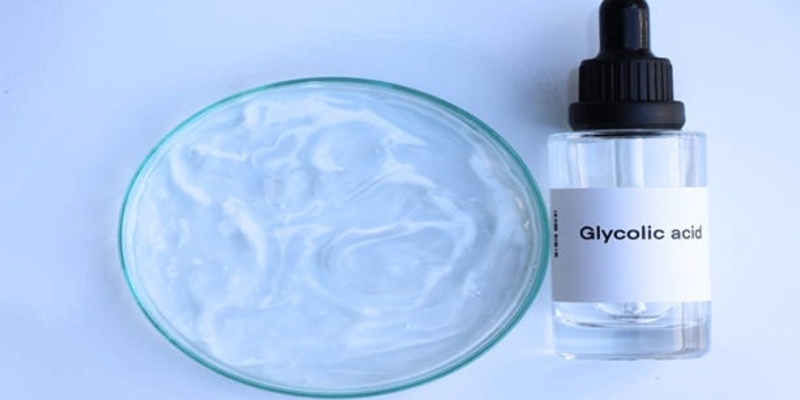Maintaining Healthy Skin in Winter: Top Care Tips
Dec 11, 2023 By Nancy Miller
There is a new set of difficulties for our skin when the seasons shift and winter's cold sets in. Indoor heating systems, when coupled with the cold and dry air outside, may cause skin to become dry, flaky, and uncomfortable. With the weather changing, it's more important than ever to start a strong skin care regimen for winter. Although it's easy to hide from the cold and put off caring for our skin until spring, doing so may cause a lot of problems. You can keep your skin healthy, glowing, and nourished all winter long with the correct approach and dedication to skin care. This article will help you keep your skin healthy and glowing by investigating the effects of winter weather and offering advice on how to deal with them.

Understanding Winter Skin
Creating an efficient skin care routine for winter requires first clarifying the effects of cold weather on skin. In order to overcome the seasonal obstacles, it is important to know how the weather impacts skin health and to be familiar with frequent skin disorders and concerns that occur throughout the winter.
How Winter Weather Affects Skin Health
Our skin is more vulnerable to a number of conditions brought on by cold weather. Dehydration and dryness might set in as a result of the decrease in humidity and temperature. A lackluster complexion may result from decreased blood flow to the skin brought on by the constriction of blood vessels brought on by the chilly air. In addition, being out in strong winds may make dryness and irritation of the skin worse.
Common Winter Skin Issues and Concerns
There are usually a lot of skin problems that need fixing throughout the winter. During this time of year, many people experience dry, flaky skin, chapped lips, redness, and itching. The severe winter weather might potentially exacerbate skin disorders, such as eczema or psoriasis, for certain people. By being aware of these factors, people may better pinpoint their skin troubles and take steps to alleviate them, guaranteeing that their skin remains healthy and pleasant even in the coldest winter months.
Essential Winter Skin Care Tips
When faced with the difficulties of winter weather, it is vital to use top tactics for maintaining good skin. This winter, make sure your skin is hydrated, protected, and comfortable by following these tried-and-true practices.
Hydration: The Foundation of Winter Skin Care
The dry, chilly air of winter may cause the skin to lose moisture quickly. A combination of internal and external hydration is necessary to combat this. To maintain skin's natural moisture balance, drink plenty of water. For further protection from the weather, it's important to use a high-quality moisturizer that locks in moisture.
Proper Cleansing and Moisturizing Techniques
To avoid drying out the skin and losing its natural oils, use a mild, moisturizing cleanser in the winter instead of a strong, drying one. After that, restore the moisture by using a thick, emollient moisturizer. The absorption and efficiency of moisturizer may be enhanced by applying it when the skin is still somewhat wet.
Sunscreen in Winter: Yes, It's Still Important
In the winter, the sun's intensity is often underestimated. Even when reflected off snow, UV rays may still do harm. Even on overcast days, it's important to cover exposed skin with a broad-spectrum sunscreen. To prevent sun damage, use a sunscreen with a minimum SPF of 30.
Incorporating Humidifiers for Indoor Comfort
Dry skin may be worsened by indoor heating systems, which remove even more moisture from the air. To keep your home at the ideal humidity level and avoid dryness and discomfort, try using a humidifier. If you want healthier skin, one little housekeeping item may make a world of difference.
You can lay the groundwork for bright, healthy skin all winter long by following these crucial steps for winter skin care. No matter how bad the weather becomes, your skin will be able to flourish because of these tactics that focus on hydration, protection, and comfort.

Nourishing Your Skin from Within
An important part of winter skin care is nourishing your skin from the inside out. In order to keep your skin healthy, glowing, and robust even in the winter, it is crucial to drink enough of water and eat a balanced diet.
Foods that Promote Skin Hydration
Your skin's moisture levels are directly affected by the food you eat. You may give your skin the moisture it needs by eating hydrating foods like cucumbers, watermelon, and citrus fruits. Fatty fish, flaxseeds, walnuts, and other foods high in omega-3 fatty acids may aid in keeping skin flexible and elastic.
The Role of Water Intake
Keeping yourself well hydrated is essential for the health of your skin. Even while moisturizers help hydrate your skin on the outside, the best way to hydrate your skin from the inside is to drink enough water. If you want your skin to stay supple and moisturized, drink eight glasses of water daily.
Lifestyle and Skin Health
Many people know that stress may lead to skin problems. Seasonal stresses and the pressures of everyday living may be especially harsh on the skin during winter. A number of skin issues, such as acne, psoriasis flare-ups, and generalized dullness, may be brought on by elevated stress levels. Mindfulness meditation, deep breathing exercises, or even just taking a soothing bath may help reduce stress and its negative effects on the skin.
The term "beauty sleep" is used to describe high-quality sleep for a purpose. Your skin repairs damage and replenishes moisture as it rejuvenates as you sleep. If you want your skin to seem young and healthy, you need to get enough sleep. In order to promote skin regeneration, it is essential to have 7-9 hours of high-quality sleep nightly.
Conclusion
Taking special care of your skin throughout the winter is more than just a fad; it's an ongoing effort to keep your skin healthy and radiant. You can keep your skin looking healthy and strong all winter long by learning about the effects of cold weather, following basic skin care advice, eating well, and leading an overall skin-friendly lifestyle. By using these tactics, you can guarantee that you will not only make it through the winter, but also look amazing all winter long.







